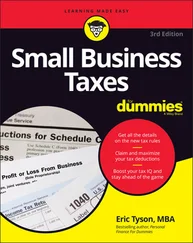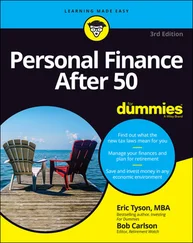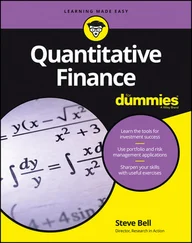Filing bankruptcy, needless to say, has it downsides, including the following:
It appears on your credit report for up to ten years. As a result, you’ll have difficulty obtaining credit, especially in the years immediately following your filing. (You may be able to obtain a secured credit card, which requires you to deposit money in a bank account equal to the credit limit on your credit card.) However, if you already have problems on your credit report (because of late payments or a failure to pay previous debts), damage has already been done. And without savings, you’re probably not going to be making major purchases (such as a home) in the next several years anyway.
It incurs significant court filing and legal fees. These can easily exceed $1,000, especially in higher cost-of-living areas.
It can cause emotional stress. Admitting that your personal income can’t keep pace with your debt obligations is a painful thing to do. Although filing bankruptcy clears the decks of debt and gives you a fresh financial start, feeling a profound sense of failure (and sometimes shame) is common.
It becomes part of the public record. Another part of the emotional side of filing bankruptcy is that you must open your personal financial affairs to court scrutiny and court control during the several months it takes to administer a bankruptcy. A court-appointed bankruptcy trustee oversees your case and tries to recover as much of your property as possible to satisfy the creditors — those to whom you owe money.
Deciphering the bankruptcy laws
If you want to have a leisurely afternoon read, then the bankruptcy laws are definitely not for you. I’m here to help clarify the two forms of personal bankruptcy in case you’re considering taking this action:
Chapter 7 : Chapter 7allows you to discharge or cancel certain debts. This form of bankruptcy makes the most sense when you have significant debts that you’re legally allowed to cancel.
Chapter 13 : Chapter 13comes up with a repayment schedule that requires you to pay your debts over several years. Chapter 13stays on your credit record (just like Chapter 7), but it doesn’t eliminate debt, so its value is limited — usually to dealing with debts like taxes that can’t be discharged through bankruptcy. Chapter 13can keep creditors at bay until a repayment schedule is worked out in the courts.
The Bankruptcy Abuse and Prevention Act of 2005 contains the elements of personal bankruptcy laws currently in effect, which include the following:
Required counseling: Before filing for bankruptcy, individuals are mandated to complete credit counseling, the purpose of which is to explore your options for dealing with debt, including (but not limited to) bankruptcy and developing a debt repayment plan.To actually have debts discharged through bankruptcy, the law requires a second type of counseling called “debtor education.” All credit counseling and debtor education must be completed by an approved organization on the U.S. Trustee’s website ( www.usdoj.gov/ust ). Click the link “Credit Counseling & Debtor Education.”
Means testing: Some high-income earners are precluded from filing the form of bankruptcy that actually discharges debts ( Chapter 7bankruptcy) and instead are forced to use the form of bankruptcy that involves a repayment plan ( Chapter 13bankruptcy). The law does allow for differences in income by making adjustments based on your state of residence and family size. The expense side of the equation is considered as well, and allowances are determined by county and metropolitan area. For more information, click the “Means Testing Information” link on the U.S. Trustee’s website ( www.usdoj.gov/ust ) under the link for “Credit Counseling & Debtor Education.”
Rules to prevent people from moving to take advantage of a more-lenient state’s bankruptcy laws: Individual states have their own provisions for how much personal property and home equity you can keep. Prior to the passage of the 2005 laws, in some cases, soon before filing bankruptcy, people actually moved to a state that allowed them to keep more. Under the new law, you must live in a state for at least two years before filing bankruptcy in that state and using that state’s personal-property exemptions. To use a given state’s homestead exemption, which dictates how much home equity you may protect, you must have lived in that state for at least 40 months.
Obtaining sound bankruptcy advice
No one should rush into filing bankruptcy. But you also don’t want to make the mistake of not considering the option if your debt has become overwhelming. If you’ve seriously investigated bankruptcy and want more information than I provide in this chapter, I suggest that you check out the book The New Bankruptcy: Will It Work for You? by Cara O'Neill (Nolo Press).
If you’re comfortable with your decision to file and you think that you can complete the paperwork, you may be able to do it yourself. The latest edition of the book How to File for Chapter 7 Bankruptcy by Albin Renauer and Cara O’Neill (Nolo Press) comes with all the necessary filing forms.
Preventing Consumer Debt Relapses
Regardless of how you deal with paying off your debt, you’re at risk of re-accumulating debt if you’ve run up debt in the past. The following list highlights tactics you can use to limit the influence credit cards and consumer debt hold over your life:
Replace your credit card with a debit card. See the section “ Discovering debit cards: Convenience without credit temptation” earlier in this chapter for the details.
Think in terms of total cost. Everything sounds cheaper in terms of monthly payments — that’s how salespeople entice you into buying things you can’t afford. Pull up the calculator app on your smartphone, if necessary, to tally up the sticker price, interest charges, and upkeep. The total cost will scare you (see my discussion in Chapter 19regarding total costs for a car). It should.
Stop the junk mail avalanche. Look at your daily mail (email, snail mail) — I bet half of it is solicitations and mail-order catalogs. And then there are the endless telemarketing calls. You can save some trees and time sifting through junk mail by removing yourself from most mailing lists. To remove your name from mailing lists, including email, and to opt out of telemarketing calls, register through the website www.dmachoice.thedma.org/static/about_dma.php . To remove your name from the major credit-reporting-agency lists that are used by credit-card solicitation companies, call 888-567-8688. Also, tell credit-card companies you have cards with, that you want your account marked to indicate that you don’t want your personal information shared with telemarketing firms.
Go shopping with a small amount of cash and no plastic. That way, you can spend only what little cash you have with you!
Identify and treat spending addictions. Some people become addicted to spending, and it becomes a chronic problem that can interfere with other aspects of their lives. Check out Debtors Anonymous (DA), a nonprofit organization that provides support, primarily through group meetings. To find a DA support group in your area, visit the organization’s website at debtorsanonymous.org or contact its headquarters at 800-421-2383.
Конец ознакомительного фрагмента.
Текст предоставлен ООО «ЛитРес».
Прочитайте эту книгу целиком, купив полную легальную версию на ЛитРес.
Читать дальше












